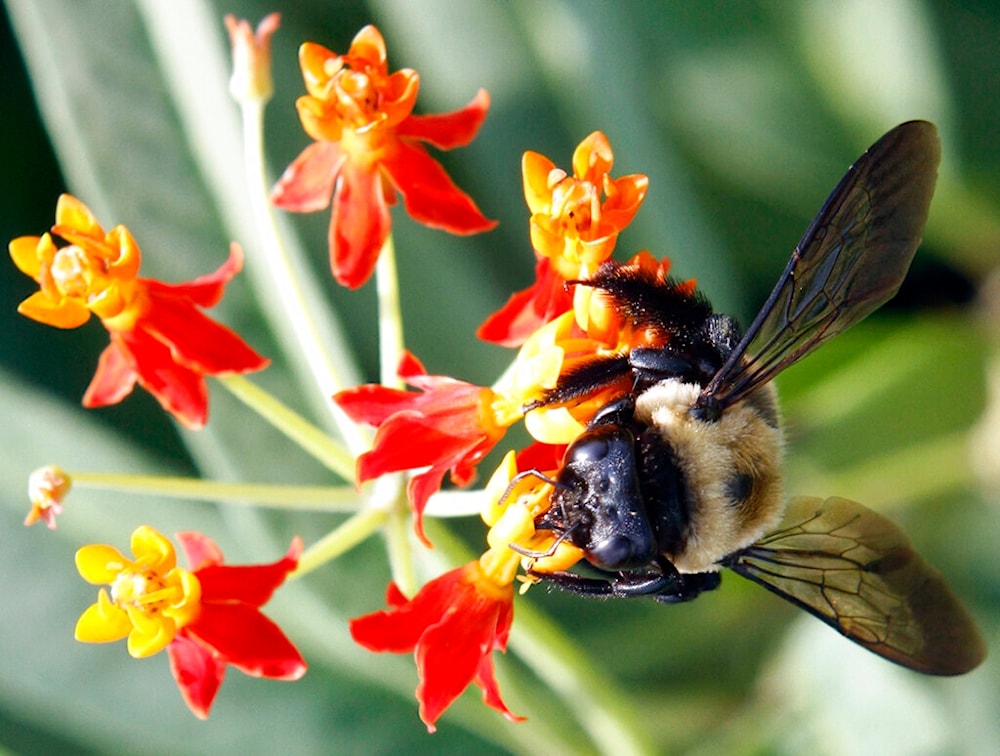Bee venom emerges as lucrative business in Kenya
Beekeepers in Kenya have been abandoning honey harvests and shifting to bee venom procurement because of its high demand for alternative medicine.
-

A carpenter bee collects pollen from a flower, Wednesday, July 14, 2010. (AP)
Beekeepers in Kenya have been abandoning honey harvests and shifting to bee venom procurement because of its high demand for alternative medicine.
The extraction process, which is non-lethal, is gaining momentum, as it provides a stable income for those chasing this profession.
Professional beekeepers employ safe strategies that invigorate bees to excrete the venom called apitoxin, which is then securely harvested. This ensures the bee survives the very elaborate and delicate process.
Economic and medicinal benefits of bee venom
Ezekiel Mumo, a beekeeper, shared the benefits of apitoxin procurement due to its sustainability in terms of income. "Bee venom guarantees you daily income because you can harvest it every day as compared to other bee products, like conventional honey, which you have to wait for four months to harvest," he said.
It should be noted that the local value of one gram of apitoxin is valued at $30, and the international value could hit almost $100, revealing the significance of the business for Kenya and its beekeepers. One bee can only excrete a few milligrams of this venom, which shows why this is also a difficult profession.
Apitherapists, practitioners of alternative medicine, are incorporating bee venom into treatments more frequently. Individuals seeking relief from various ailments are sharing positive results.
Stephen Kimani, an apitherapy practitioner trained in Romania, explains that bee venom initiates the production of curative antibodies within the body, drawing inspiration from ancient Chinese practices to address specific conditions.
Bee venom as an alternative medicine in Kenya:
— CGTN Africa (@cgtnafrica) January 28, 2024
Kenyan beekeepers are banking on the harvest of bee venom that has emerged as a lucrative practice in their industry. The product is also gaining popularity in alternative medicine practices linked to traditional Chinese… pic.twitter.com/Irl30ma4vG
Apitherapy has been well-received in Kenya, but the practice is not properly regulated. However, measures are implemented to guarantee its safety, such as allergy testing to avoid any reactions to the substances being incorporated.
The growing prominence of the bee venom industry underscores a harmonious equilibrium between economic prospects and ecological responsibility. Sustainable practices are being utilized to fulfill the increasing demand for this unique yet valuable resource.

 2 Min Read
2 Min Read








